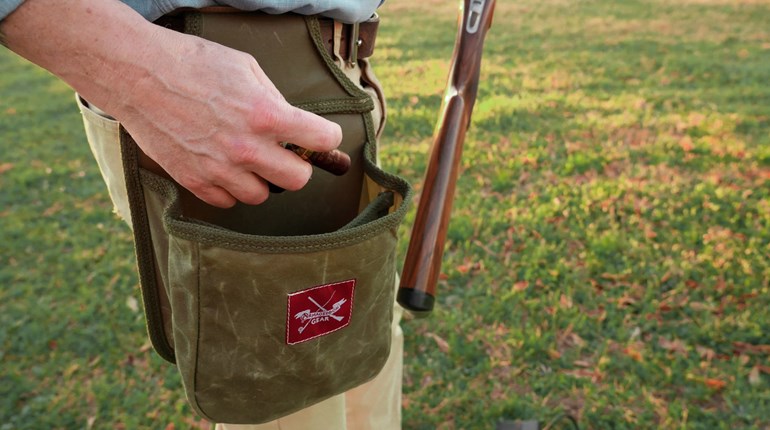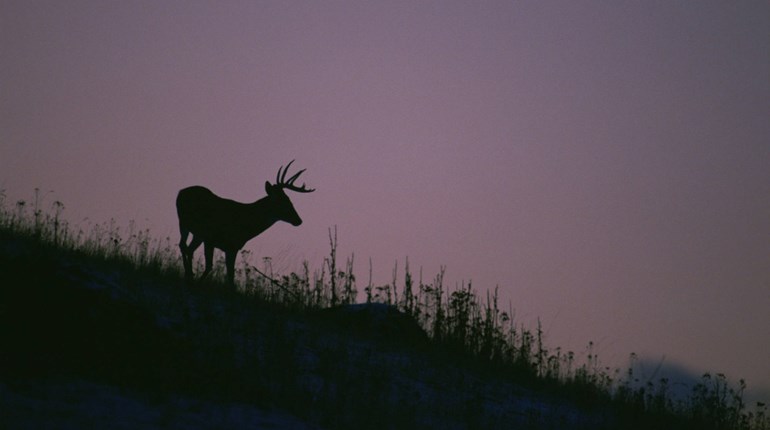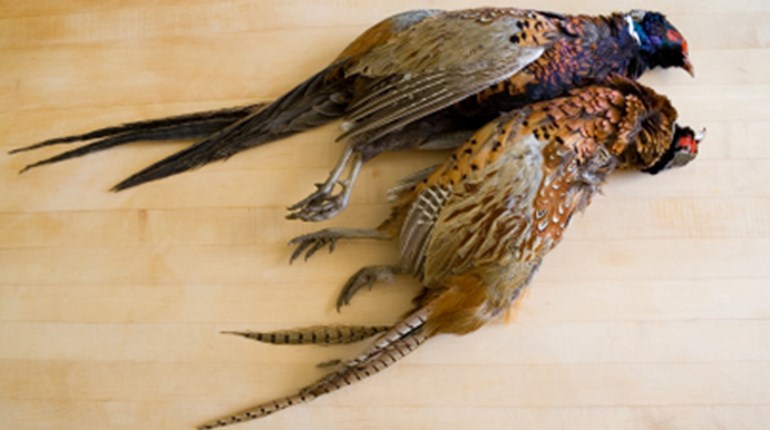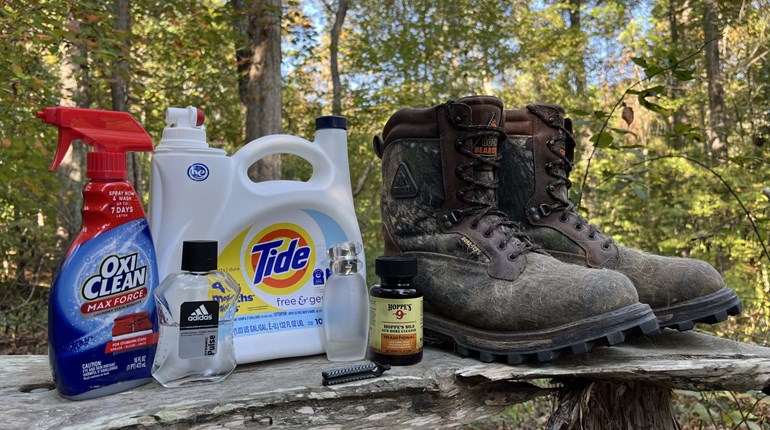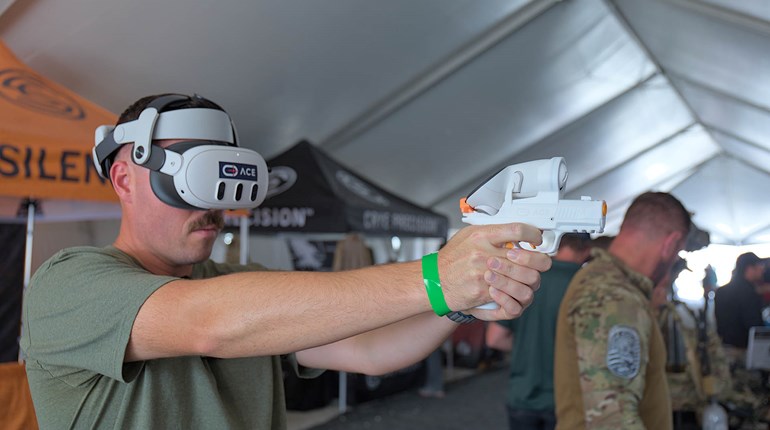
It’s been said that man’s ability to dominate the large predators due to the invention of tools, or more specifically weapons, is what finally started our species down the road to civilization. Once the large predators learned to fear man instead of considering humans as food, we became the dominant species.
From there we progressed to farming, building cities, hospitals, the Internet and I suppose ultimately “Occupy Wall Street.”
Clearly every plan has its flaws. But for those of us grounded in reality there is a residual effect. Buried deep in our reptilian brain, probably as a result of being prey for so many years, is an instinctive desire to hunt the critters that can stomp, gore or chew us into a bloody puddle.
Hunting dangerous game is far removed from hunting prey species. It’s an entirely different mindset and a much different set of emotions before, during and after the hunt. Dangerous-game hunting and its motivation are often called into question in today’s emasculated society, but it remains the ultimate challenge for those true to their genetic calling to be hunters.
There is one big problem for most of us on that front. Our expanding civilization has made it all but impossible for average hunters to go to where the dangerous animals live and hunt them on their own.
Modern dangerous-game hunting will usually require that you travel to exotic places, primarily Africa, and pay for a professional hunter to take you hunting. The opportunities are limited and the demand is very high. So, with the simple economic concept of the law of supply and demand, the price to hunt dangerous game today is extremely steep.
There is no getting around a lot of the costs. Things like airplane tickets to Africa, charter flights into the wilderness and the cost of operating a camp are pretty much fixed. But with some imagination, flexibility and patience a hunter may be able to save a few bucks. This is particularly true if your goal is the experience more than a huge trophy to hang on the wall.
I contacted booking agent Keith Atcheson about some of the possibilities. Here is some of what he emailed from his elk camp. It’s good advice on how to get started.
Do Your Homework/Make a Plan
“I’d say the best way for a regular Joe to find a good hunt he can afford is to have a relationship with a good agent and develop a plan, budget, etc. The best values on DG come later in the hunting seasons (say September thru November) when the operator has a clear picture of what quota he has remaining for the season. This is the most likely time that the operator will have interest in reducing day rates and trophy fees on potential DG hunts. It’s going to be hotter then, but this is when you can find real value.
“A good agent has many contacts in Africa, which gives the client far more resources to find the right hunt. Remember, it does not cost the client any extra to use an agent and there is great value in an agent who has real leverage when something goes wrong.”
Another option that they can help with is a cancellation hunt. Often another hunter will book something and then cancel last-minute for whatever the reason. Most agents will have a waiting list of clients for this situation. Often you can get the hunt for the balance of what is owed, sometimes as little as half price. You’ll need to be able to move on it very quickly. So you will need to have all your gear ready and your passport in good order. You also must be flexible enough to go on short notice and be away from home and work as long as a month. The plane ticket might be more expensive due to the shorter notice, but you will still save money in the long run.
In addition to working with an agent, do your homework and network with every reputable hunting operation you find. Make sure they know who you are, how much money you have to spend and that you are available on short notice for late-season hunts. Work the Internet and the advertisements in magazines like this one.
It’s also smart to attend the big hunting shows, particularly Safari Club International’s annual convention. Most of the top hunting operations and booking agents are there, so it’s a fantastic place to network.
Be Realistic & Know the Risks
Another option is becoming a salesman for the agent or PH. If you can find several other hunters for them, you will be able to negotiate a reduction in your hunting costs. You also need to be realistic about what you want to hunt. Some species of dangerous game are just not going to be on the table.
Rhinos are impossibly expensive unless you want to dart one, which I think is harassment and not hunting. It will be a white rhino anyway, not the truly dangerous black rhino that is part of the “Big Five.” It’s one of the most endangered species in Africa and is extremely protected. There has been at least one black rhino tag auctioned off in recent years to raise funds for more protection, but I think it went for more money than I gross in a decade.
Forget cats, too. Leopards start at $15,000 and go up, with a waiting list and few bargains. There is a lot of international pressure to stop lion hunting and the hunting opportunities are shrinking every year while demand continues to rise. You could buy a nice, foreclosed house in most parts of the country for the price of a top lion hunt today. Keith says a decent lion hunt starts at $25,000, but most hunts are double or triple that price.
A lot of African PHs say that of the Big Five, buffalo hunting is the most dangerous. The buffalo is big, fast, tough and often comes with a very bad attitude. Sometimes the least little thing will set one off. My friend and fellow gun writer Chub Eastman was in a truck when a buffalo attacked it as they stopped to glass. Another buddy, Randy Luth, was hunting bushbuck in Zimbabwe when a Cape buffalo came out of nowhere and attacked him. It got close enough to hook his shirt as he dove out of the way. When I was in Zimbabwe hunting leopard a few years ago a buffalo attacked one of the game scouts. The guy was bruised and battered, and the bull ripped off his clothing so he was left naked. But he survived after his partner shot the bull in the butt with a load of buckshot and it ran off. It was later tracked down and killed.
These were unprovoked attacks. Buffalo, of course, are legendary for turning mean and vindictive when wounded. In Tanzania, my hunting companion wounded a bull. Sensing it was hurt, another bull attacked that one, then the two of them decided to come after us. Then it got very noisy! After something close to a dozen shots we were all still standing but the two bulls were down for the count.
Hunting the Cape buffalo might well be the epitome of African dangerous-game hunting—and the good news is the price to hunt it is much lower than for any other of the Big Five. If you shop around you can find a good trophy hunt for about the same price as a top elk hunt, or perhaps even less. With the poor economy a smart shopper can find hunts starting under 10 grand. Compared to any of the other Big Five that’s chump change.
Cape buffalo are also the most common of the dangerous big game, which means you might also be able to find even more bargains. There are a lot more tags available for Cape buffalo than for any other dangerous game, which increases the odds of finding leftover quota late in the season. If you don’t mind hunting when the weather is hotter, you can often pick up a leftover buffalo hunt at a bargain price.
Be Flexible
A hunter looking for the dangerous-game experience should also consider some flexibility in the game pursued. Don’t overlook the possibility of doing a hunt for a cow buffalo. This can be every bit as exciting as a big bull, but for a fraction of the cost. Keith Atcheson says to expect trophy fees for a cow to run $800 to $1,200, which are about half, or lower, than the fee for a bull trophy fee.
Another good example of where flexibility can provide a good dangerous-game experience is with elephant hunting. Elephants can be extremely dangerous to humans. They can be ill-tempered and they will hold a grudge, often charging on first sight or scent. Every year they kill a lot of people, including hunters.
Few survive an attack from the largest land mammal simply because it is so big and powerful. Elephants are creative about how they make you dead. They will crush you with their forehead, rip you apart like a loaf of French bread, impale you with a tusk as big around as a man’s thigh or stomp you into a bloody, muddy pulp.
Hunting is done at close range and often in thick brush. A big bull can weigh more than 6 tons, so there is no rifle on earth that will feel like it’s too big when he is staring you down at 20 yards.
Elephant hunting is often as exciting as hunting can get. But it’s so expensive to hunt a trophy bull that unless you make blockbuster movies, run a Fortune 500 company or got an Obama bailout the odds are you can’t afford the experience.
Sometimes you can find a “problem” elephant, one that has been raiding crops or harassing the locals. If the timing is right you may be able to get a permit to hunt that specific elephant for a much lower price. But this is a hit-or-miss proposition. If you can find one and the timing works, it might be the deal of a lifetime. Once again, working with a good agent and being very flexible can make this happen.
Consider a "Cull" Hunt
Another, more viable, alternative is to book a tuskless elephant hunt. That’s what I did in Zimbabwe. Tuskless elephants are considered to be genetic aberrations and often they are culled from the herd so they will not breed and pass on the “tuskless” genetics.
These are “cull” hunts so you cannot keep any part of the elephant, and you are not allowed to take anything home except photos. But you can keep the memories, which might well be outstanding. Besides, shipping trophies home is extremely expensive, as is taxidermy work, so you save the cost of all that.
Most PHs I know consider hunting tuskless elephants to be among the most dangerous of all big-game hunting. First off, they are almost exclusively cows (although mine was a bull). Generally the bulls are docile, well-tempered critters but the cows are the most dangerous—they’re mean, vicious and in a perpetual state of awareness. They’re the worst. Like the little guy who is trying to make up for being small, the tuskless elephants seem like they are always spoiling for a fight.
While the big trophy bulls are loners or travel in a small groups, the tuskless elephants will be with the herds. The herds are primarily made up of cows and youngsters. You will be required to sneak around all those elephant eyes, ears and long smellers while trying to find a tuskless elephant to shoot. So the end result is that hunting one is probably going to be one of the most adrenaline-filled experiences of your life.
My hunt was all of that. One morning we were chased by a bunch of elephants and barely avoided the need to shoot our way out of trouble. When we reached a clearing and stopped to shoot, we spooked some other elephants. We stopped moving just as they started, and the herd that was intent on stomping us flat mistook their noise for us and went after the other elephants. We slipped out of there as fast and as quietly as we could.
Later, the elephant I shot charged from just 12 yards. My first shot missed the brain and as with the buffalo, it got noisy. After it was over, the tracker pointed at the full auto FNH FAL the game scout carried while he looked at my bolt-action and said, “Your gun shoot faster than his gun!” I guess all that practice paid off.
The great part is that the trophy fees for a tuskless hunt will run about $3,000 to $4,000. That’s a fraction of the trophy fee for a bull elephant. You get everything except the ivory tusks. In fact, you will probably get a more exciting hunting experience than you would with a big bull elephant.
Another less expensive way to include dangerous game on your safari is to hunt hippo or crocodile. Unless you are hunting hippo on dry land, it might not be as exciting as it can get with the other species, but you will hunt the two animals that probably kill more people in Africa every year than all the others combined. There is no doubt that they are dangerous game. They can be challenging in their own way as well. Both can require precision shooting as they share a trait with zombies: “only brain shots count.” The trophy fees are relatively low when compared to other glamour species, and they can easily be added to a safari for other species, allowing you to double-dip.
Make it Happen
One last thought on all this. If the desire to hunt dangerous game in Africa keeps you awake at night, if it’s burning in your belly like a hot coal, find a way. Work overtime, pick up a second job, do whatever it takes, but find a way. While it will seem like an insane amount of money to spend, I promise you after it’s over you will never have a moment of regret about writing the check.












